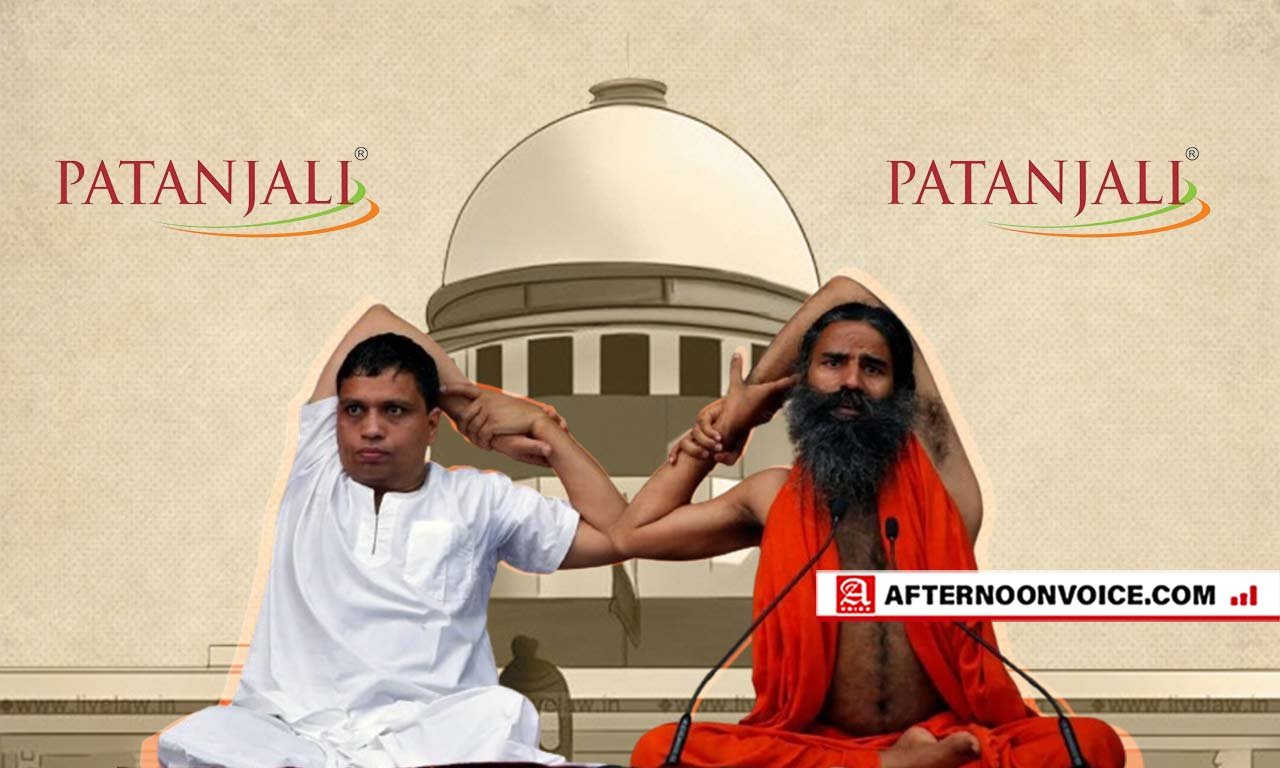
From political statements to product sales, Ramdev always misleads the people of India. He came to the limelight with his protest against black money and then the Congress government. Baba Ramdev failed to honour his promise to bring back unaccounted money stashed abroad during the Lok Sabha election campaign. Baba Ramdev had categorically promised the people of the country that the black money would be brought back within 100 days of the BJP government coming to power. Baba Ramdev had given all sorts of details about this black money abroad, and the BJP leadership had gone to the extent of announcing that if brought back, this huge amount of money stashed in bank accounts abroad could solve the problem of poverty in the country. They promised that once the black money was brought back, each family would be given Rs 15 lakh, a pension of Rs 25,000, and a rebate on all forms of taxes. It’s been almost ten years of BJP rule, but neither Baba Ramdev clarified his promises nor did the BJP take any responsibility. Amit Shah in his media interview said, 15 lakh promise was bluff, a Jumla to woo people.
Baba Ramdev did his level best to create anger against the Congress and fetch power for the BJP. In turn, he got rewards from the powers, such as landings at minimal prices, and product promotions. BJP leaders presented this Baba above everything. Baba understood the game and got into the consumer product business. When Patanjali was launched, people were excited to buy their products as they were promoted as a cheaper, healthier, and healthier/safer alternative to other FMCG brands. Slowly, they tried jumping into the manufacturing of every other similar kind of item that other FMCG brands are into. Moreover, there is hardly any difference in the pricing. Ramdev’s intention was to commercialise his Patanjali products. He used every media channel and Indian politicians and celebrities to promote his brands. The quality of many of the products is suspect because he outsources most of them to third parties, where adequate controls are not feasible with his kind of infrastructure.
On radio and over TV, Patanjali products are advertised ad nauseam, and it is estimated that Ramdev’s face appears on one major Indian TV channel every 30 seconds, which, coupled with ad spends for print and radio, involves an annual expenditure of Rs 400 crore. That too, because the cost does not involve that of the model”—the so-called yoga guru himself. But most importantly, in radio ads, his sales pitch is that Patanjali products must be purchased to secure “aarthik azaadi for Bharat.”. Similarly, in one of the frequently aired ads, references are made to the Swadeshi movement of 1906, and images of Bhagat Singh and Chandrasekhar Azad are used liberally.
Essentially, this means that Ramdev is likening his products to those that were popularised in the first flush of the nascent national movement, and he is presenting himself as part of the generation of India’s freedom fighters. A businessman must remain in his territory, and such tactics must be disallowed. It is for the government to decide that. If it chooses to allow Patanjali or any other company to use national icons, symbols, and episodes of the freedom struggle, it becomes open to charges of pandering to crony capitalism.
In his advertisements, the promoter of Patanjali also claims that profits earned from the sale of products are accrued in the account of any person. However, Balkrishna, Ramdev’s aide who spent time in jail on charges of money laundering, owns 94 per cent of the shares of Patanjali Ayurved Limited. The Supreme Court of India pulled them, and then they rendered an unconditional apology as well. But then, the Supreme Court of India rejected apologies filed by Patanjali founders Ramdev and Balkrishna for the company’s misleading ads and said, “We don’t want to be so generous in this case,” asking why it should not treat the apology with the “same disdain as shown to the court undertaking?” The bench also noted that it is not satisfied with the Centre’s reply in the matter. The honourable court stated, “Why should we not treat your apology with the same disdain as shown to the court undertaking? We are not convinced. Now going to turn down this apology. Now a message must go to society. We are making it a part of your conduct. What kind of medications have you been coming out with,” Justice Kohli said. Noting that Ramdev and Balkrishna sent their apologies to the media first, the court said, “Till the matter hit the court, the defendants did not find it fit to send us the affidavits. They sent it to the media first, till 7.30 pm yesterday, it was not uploaded for us. They believe in publicity clearly.”
The Apex Court also pulled up the Uttarakhand government for not taking action against Patanjali Ayurved for violation of the law. The court told the Uttarakhand government that it was not going to let it go. “All complaints were forwarded to the government. The licencing inspector remained quiet, there was no report by the officer. The concerned officers should be suspended right now,” the court said. Asking the Uttarakhand state licencing authority about why “we should not think you are in cahoots with alleged perpetrators,” Justice Kohli said, “You are keeping your eyes shut deliberately. You are hand in glove.”
Well! The timely intervention of the honourable court may control the mindless claims and advertisements of Patanjali, and also create some deterrence in these people who are taking people for granted. If I talk about my personal experience, as his business grew by leaps and bounds, my reasons to stop using Patanjali products also increased for several reasons, but most importantly, what I noticed is that he proclaimed himself a Guru and established himself as a businessman by taking advantage of people’s sentiments for saffron.

